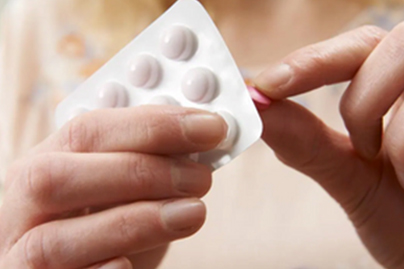This week’s post is prompted by World Antibiotic Awareness Week (November 18-24, 2019)

I’ve spent majority of my life in Bangkok. I was born at Samitivej Sukhumvit Hospital (now one of our trusted partners!) and lived in downtown Bangkok until I was 9 years old. For the next nine years I lived in Kobe, Japan, but came back to Bangkok every summer (for 2-3 months) and winter (for 2-3 weeks). Following that I spent five years in the United States where I studied Health Policy and Management at the University of Southern California and was experienced a variety of internships including stints at the Clinton Foundation in the Health Arm in Boston and the Asthma and Allergy Foundation of America (AAFA) in Washington DC.
It was during my time at AAFA that I learned about Antibiotic Resistance, but before getting into the details of resistance, let’s first understand what antibiotics are. As defined by the World Health Organization, antibiotics (or antibacterials) are medicines used to prevent and treat bacterial infections. Antibiotics CANNOT treat viral infections, such as cold, flu, and most coughs (https://www.medicalnewstoday.com/articles/10278.php). “Antibiotic resistance occurs when bacteria change in response to the use of these medicines. Bacteria, not humans or animals, become antibiotic-resistant. These bacteria may infect humans and animals, and the infections they cause are harder to treat than those caused by non-resistant bacteria. Antibiotic resistance leads to higher medical costs, prolonged hospital stays, and increased mortality. The world urgently needs to change the way it prescribes and uses antibiotics.” (https://www.who.int/news-room/fact-sheets/detail/antibiotic-resistance)
Have a look at this infographic from the WHO explaining how Antibiotic Resistance Spreads:

The reason I started this post mentioning that I’ve lived in Bangkok for most of my life is because during my childhood I went to so many doctors in this city when I have a cold or cough and the doctor almost automatically prescribes antibiotics. Before there was widespread knowledge about antibiotic resistance, this was the norm. Now that we know the threats it poses, before taking antibiotics for something that may not be bacterial in nature, please ask your doctor if you really need them. And if you know someone who frequently takes antibiotics for simple sneezes and sniffles, let them know they could be endangering themselves and their loved ones. (https://health.clevelandclinic.org/when-antibiotics-stop-working-whats-next/)
Have a look at this short but informative video about using antibiotics correctly and take action where needed:https://www.youtube.com/watch?v=-ZX97bIbZBQ(ask him to embed the video in the post pls)
Don’t get me wrong; antibiotics are not the devil. They are extremely effective to treat bronchitis, pneumonia, strep throat, ear infection, and pinkeye – as long as they’re caused by bacteria. If used correctly and only when required, there is nothing wrong with taking antibiotics.
Are you worried that you may take antibiotics too often? Or unsure if you take them when you don’t need to? Reach out to us and we will be happy to hear more about your concerns and find a way to help you.
Written by Devi Bajaj
Founder and Director of Enliven Health Concierge
#EnlivenConcierge#MedicalConcierge#MedicalTourism#Health#Antibiotics#Antibiotic#AntibioticResistance#AntibioticAwarenessWeek#Bacteria#BacterialInfection